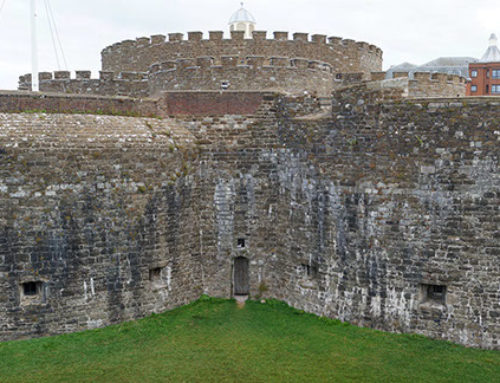I love to cook. I was a waitress for many years, and much of what I’ve learned through the skin is what I’ve pestered out of the really great chefs I was lucky enough to work with. My biggest boom moment was when I was told that what it’s really about is ratio, such as the one between salt and acid.
This not only made a lot of sense but it aligned with my guiding principle of the children’s story “Stone Soup”. Its point is that you can meet your own needs and often the needs of others with resourcefulness and mindfulness. A hungry traveler comes into a poor village looking for food. Everyone at first refuses because they feel they have too little to share. So he sets up a boiling cauldron of water in the center of the village and tosses a stone in it to make stock. Eventually, one by one, the villagers volunteer what little they have and they end up making enough soup to feed the whole village.
My other thread about cooking and food is a good larder is a simple one. From it, you can make great stocks, dressings, etc. out of very few but well-chosen ingredients. You don’t need a million cookbooks, or a fortune in jars of boutique condiments to be a good cook. I had a boyfriend who could do just about anything with one bottle of rice wine vinegar and his favorite soup base he buys from China Town for two bucks and part of what makes it taste so good is that he does it with his instincts and joy.
So it’s about the proportion between what’s available and how it’s used.
I’m a huge fan of Jared Diamond, the author of Guns Germs and Steel, and Collapse: How Societies Choose to Fail or Succeed. He also talks about the relationship between supply and adaption but in terms of sustainability. In his discussion about the rise and fall of civilizations and why some lasted and others did not, one of the inter-dependent but critical factors is understanding the balance between resources and how they’re maintained and applied. If they’re taken for granted and squandered, collapse follows.
Two major resources to the sustainability of culture are soil and forestry. He names Easter Island, Rwanda, the Vikings in Greenland, and the Anizazis as case examples of failure because they didn’t understand ratio and they didn’t manage what they had. Examples of success are the Dominican Republic and Japan, both on small islands that practice rationing, self-control, self-reliance, and re-forestry.
Resources are not to be taken for granted. The disappearance of the honey-bee, cherished for its gift to pollinate since Ancient Times, is no small matter. It’s not just a bug. Without bees buzzing from plant to plant, plants can’t bear fruit or vegetables. And if the bee goes, so do world food crops. Currently taking the bee’s place is our emerging dependence on corporations who dominate the world food market with engineered seedless crops that cannot be independently grown. This leads to controlled deprivation and ultimately poverty and conflict.
Many of Europe’s wars were over forestry. England and France had depleted their forests, topsoil, and lumber to feed the domination of their empires. And they went to war against each other quite frequently. Needless to say, the New World, a three thousand mile stretch of continent bursting with lumber and natural resources of all kinds looked mighty good. And the rest, of course, is history.
The colonization of the New World led to the largest leviathan of consumerist culture ever known that became a beacon worldwide for what is aptly called, “a dream”… that there will always be enough.
I got the idea for this first blog entry while I was wandering the aisles of Duane Reade. During flusher times I would have bought a few things that I can no longer afford. Like that jar of $39.95 face cream that promises me, it will reverse the direction of my jowls.
My mind then went through the paces of my given resources, noticing my instilled impulse to buy/take, the instant but fleeting gratification of this activity, and that I in fact did not really need any of the things I was looking at. I either had something at home that I could use up first or adapt or on a ten beat count I could decide I didn’t need at all, (drink more water, eat my vegetables and get more sleep) and that my resources/bank account should be reserved for better use.
In the moment I made that decision, I felt this small but strange sensation of triumph because I had differentiated between desire and need and made a conscious choice.
The economy of sustainability is liberating on all levels. It’s a direct and clear ratio, unfettered by clutter, waste, or anything that blocks your perspective of the big picture.
Even if you’re not on a tight budget, it’s still a principle to live by. Stopping to ask yourself “do I REALLY need this and what does it actually sustain?” is a question we should all ask ourselves, rich or poor. Just because you can buy something, or want to buy something doesn’t mean you should.
Making conscious choices gains a great deal. You appreciate what you have. You put it to use, and with resourcefulness, you can see potential in hidden places and keep it all circulating.
There are many reasons for clutter. Our consumerist culture is one of them. So if you have too much stuff, one of the ways to keep it from creeping back into the house is to remember the wisdom of a children’s story Stone Soup every time you wander into a store.




Leave A Comment